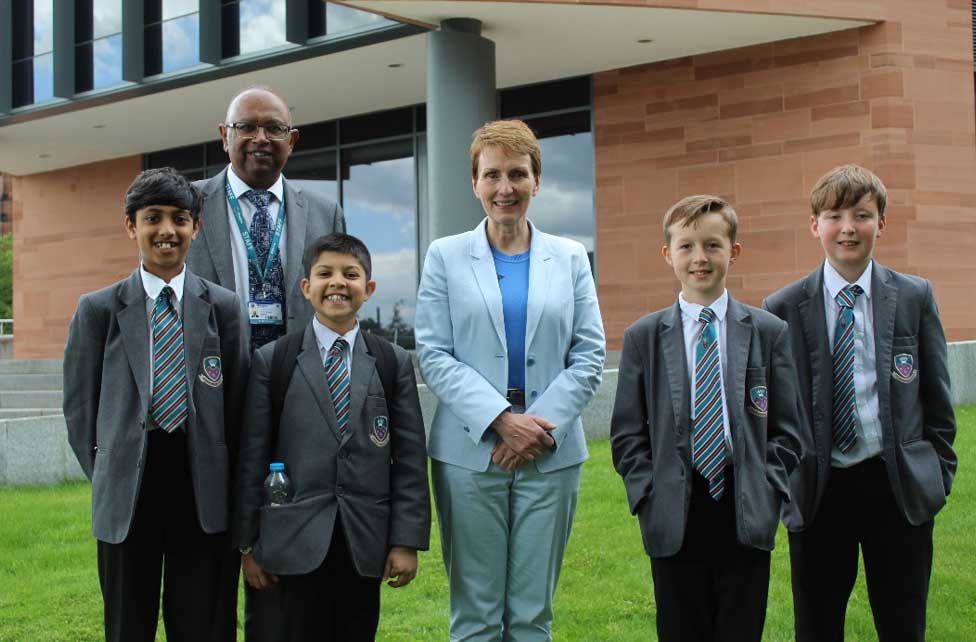
Four lucky pupils won a school based competition to meet Britain’s first ever astronaut: Helen Sharman when she arrived in Bolton to deliver a lecture for the Royal Society of Chemistry. Year 7 pupils, Ozair Patel, Lewis Kinsella, Zayn Teemil and Jack Riding were thrilled at the prospect of meeting our very own first astronaut. Meeting with astronauts is not a new experience for Sharples’ pupils; you may recall our meeting with Tim Peake whilst he was in orbit in the Space Station and then when he came back down to Earth.
Dr Peter Hoare, from Newcastle University, entertained the year 7 pupils in the morning with his wonderful experiments based on elements and colour. It is currently the International Year of the Periodic Table – #YPT2019. Miss Molyneux was also presenting at the event, on the theme of Space Chemistry, but this was to other members of staff attending from across the country.
After an eventful morning, we finally met Helen Sharman and it was well worth the wait. She gave a private talk to a group of pupils, including us, based on her experience as a scientist and an astronaut. She worked for Mars as a Chemist in the chocolate laboratory – sounds like a dream job – and she entered a competition to find Britain’s first scientist. She said she was surprised to win and had to undergo 18 months of training before launching into space on 18 May 1991. The Soyuz TM-12 mission, which included Soviet cosmonauts Anatoly Artsebarsky and Sergei Krikalev, lasted eight days. Most of that time was spent at the Mir space station. Helen Sharman’s tasks included medical and agricultural tests.
Ozair Patel, Lewis Kinsella, Zayn Teemil and Jack Riding asked many very good questions, scientific and non-scientific as well. This was an occasion to remember and we finished our meeting with photos and autographs.
Sharples’ Year 7 pupils also made many friends during the course of the day and we shall see some of them visiting our observatory soon.




